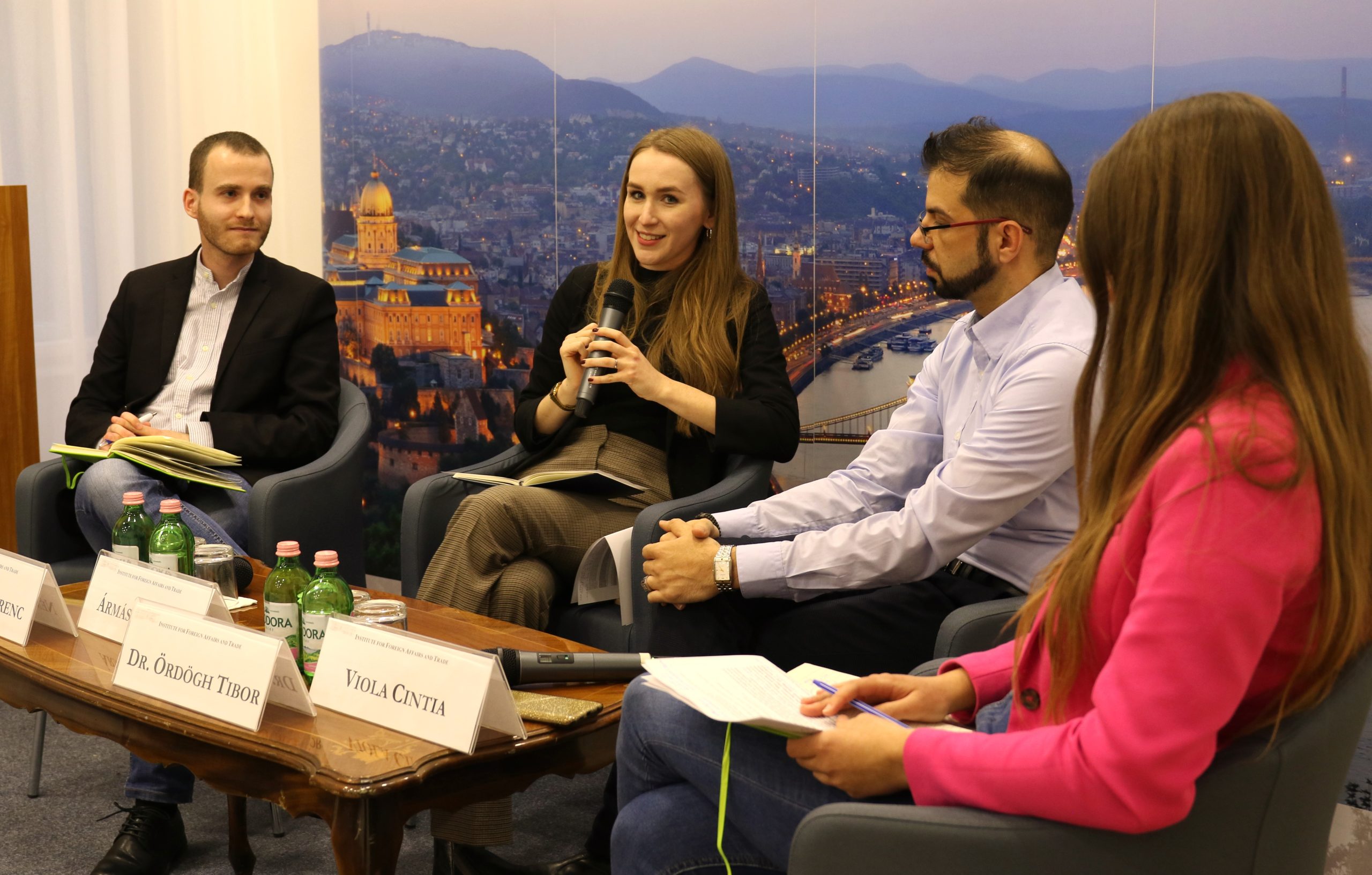The Institute for Foreign Affairs and Trade (IFAT) held a roundtable discussion entitled “Western Balkans in 2023: Expectations vs. Anticipations” on 16 January 2023. Participants included IFAT Research Fellows, Julianna Ármás and Ferenc Németh, and Tibor Ördögh, Associate Professor of the National University of Public Service. The conversation was moderated by Cintia Viola, Research Fellow of IFAT.
In his opening remarks, Tamás Péter Baranyi, Deputy Director for Strategy of IFAT, emphasized that the Institute will continue to focus on the Western Balkans in the coming year, including through the Budapest Balkans Forum in March, and therefore the opening event of the year bears of symbolic importance too.
During the panel discussion, participants reviewed the geopolitical challenges that had a direct or indirect impact on the Western Balkans in the past year and assessed the local challenges that will (also) define the region in 2023.
Experts agreed that Russia’s invasion of Ukraine has had a severe impact on the region’s economy and has fundamentally changed the course of countries’ energy diversification efforts. Julianna Ármás stressed that the speedy economic growth after the Covid-19 pandemic has stalled due to the impact of the war, and countries are forecasting a significant GDP decline in 2023. Ferenc Németh said that the impact of the war in Ukraine on supply chains has also transformed the energy sector in the region, with countries opening up to new sources of supply such as Azeri and Qatari energy, but also boosting the region’s LNG capacity, especially in Croatia and Greece. The Research fellow underlined that the expansion and modernisation of energy networks in the Western Balkans could be a key factor for the energy security of Central and Eastern Europe as a whole and could positively impact regional cooperation in the Western Balkans.
Tibor Ördögh stressed the seriousness of the demographic situation in the region: the high level of emigration to the West is a challenge for the region, and it has only been exacerbated by the post-war economic situation. In relation to the sanctions packages following the war in Ukraine, the Associate professor said that the sustainability of Serbia’s balancing policy in 2023 could be a permanent problem for the country’s foreign policy and its integration into the EU.
The experts agreed that no progress is expected in the Western Balkans’ integration with the EU in 2023. This is mainly due to the structural problems of the (potential) candidate countries and the lack of consensus on EU enlargement policy. The panellists cited the Belgrade-Pristina dialogue and the internal political developments in Bosnia and Herzegovina and Montenegro as the key political processes in 2023: Serbia and Kosovo are not expected to normalise their relations this year, and the candidate status will not help Bosnia and Herzegovina to implement its reform process.
Photos by Institute for Foreign Affairs and Trade (IFAT)

